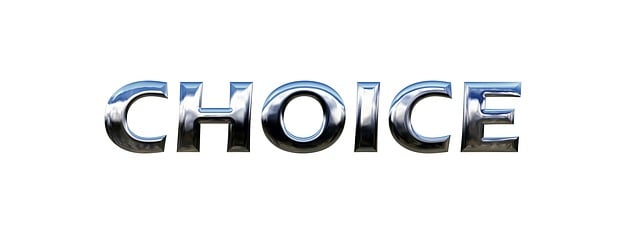Understanding your commercial property needs is crucial for selecting effective business insurance. This involves assessing asset type, industry-specific risks, location hazards, and regulatory requirements. Tailor risk assessments based on priorities like inventory coverage or liability protection. Key policy types include property, liability, workers' compensation, and business interruption. Compare quotes from multiple providers, scrutinize fine print, and ensure comprehensive coverage aligns with short-term and long-term needs. A strategic approach involving research, expert guidance, and tailored customization results in optimal insurance protection. Regularly review policies to adapt to changing circumstances and dynamic risks.
Choosing the right business insurance is a crucial step in safeguarding your commercial property and securing your business’s future. This comprehensive guide will navigate you through the process, from understanding unique commercial needs to comparing policies efficiently.
Learn about diverse coverage options tailored to specific risks and how to interpret policy language. Discover tips for customizing your plan and staying updated as your business evolves. Master the art of ‘how to choose the right business insurance’ by following these strategic insights.
Understanding Your Commercial Property Needs

Understanding your commercial property needs is the first step in choosing the right business insurance. This involves evaluating factors like the type and value of assets, potential risks specific to the industry, location-based hazards (such as natural disasters), and regulatory requirements. Each business is unique, so a comprehensive risk assessment is crucial. For instance, a retail store might prioritize inventory coverage against theft or damage, while an office space may focus on liability protection in case of slip-and-fall incidents or data breaches.
Knowing your insurance goals allows you to identify the key coverages needed. Common options include property insurance to safeguard buildings and possessions, liability insurance to protect against claims related to bodily injury or property damage, and business interruption insurance to mitigate losses during periods of forced closure. How to choose the right business insurance involves comparing quotes from multiple providers, reading policy fine print, and ensuring coverage aligns with both your immediate and long-term commercial property needs.
Types of Business Insurance Policies

When considering insurance for your commercial property, understanding the various policy types is key. The right coverage will protect your business assets, liabilities, and financial health in unforeseen events. There are several main categories to explore. Property insurance safeguards your physical space and belongings from perils like fire, theft, or natural disasters. Liability insurance covers legal costs and damages if your business injures someone or causes property damage. Workers’ compensation insurance is mandatory in many places and provides medical benefits and wage replacement for employees injured on the job. Business interruption insurance steps in to cover lost income during periods of temporary closure due to covered events.
How to Choose the Right Business Insurance involves evaluating these options based on your specific needs, asset value, potential risks, and budget. Assess the likelihood and impact of different scenarios, then compare quotes from multiple insurers. Don’t forget to read policy fine print carefully; ensure coverage limits, deductibles, and exclusions align with your understanding of risk and liability. Remember that a qualified insurance broker can provide expert guidance tailored to your unique business profile.
Assessing Risk and Coverage Options

When choosing the right business insurance, assessing risk and coverage options is a critical first step. Start by evaluating your commercial property’s vulnerability to perils like fire, theft, natural disasters, or vandalism. Consider the potential impact on your operations and finances if these events occurred. This risk assessment will help you determine necessary coverage levels for property damage, liability, and business interruption.
Next, explore various insurance coverage options tailored to commercial properties. These may include building and content coverage, general liability insurance, professional liability insurance, and business interruption insurance. Each option serves a unique purpose, protecting against specific risks relevant to your business activities. Researching and comparing these options will ensure you select the most comprehensive and cost-effective package that aligns with your property’s unique risk profile.
Comparison Shopping for the Best Rates

When choosing business insurance, one of the most effective strategies is to comparison shop for rates. This involves researching and evaluating quotes from multiple insurance providers to find the best value for your needs. Start by identifying reputable insurers in your area that offer commercial property coverage. Request quotes from each company, ensuring you provide accurate information about your property, business activities, and desired level of protection.
Consider factors beyond price when comparing options. Evaluate the range of coverage offered, policy exclusions, deductibles, and the reputation of the insurer. Reading reviews and checking their financial stability can help ensure they are reliable. By taking the time to shop around, you can secure comprehensive business insurance that aligns with your budget and protects your commercial property effectively.
Reading and Interpreting Policy Language

When selecting business insurance, one of the most crucial steps is understanding the policy language. It’s essential to read and interpret every clause carefully before making a decision. Insurance policies can be complex, often using technical terms and conditions that may seem intimidating. However, taking the time to grasp these details will help you choose the right coverage for your commercial property.
Start by familiarizing yourself with key terms and definitions. Look for exclusions, which are circumstances not covered under the policy, and ensure they align with your business risks. Check the limits of coverage; do they offer adequate protection for potential losses? Compare different policies to find one that balances cost and comprehensive benefits. Understanding the fine print will empower you to make informed choices, ultimately leading to a more suitable and effective business insurance plan.
Customizing Your Business Insurance Package

When selecting a commercial property insurance package, customization is key to ensuring you get the right coverage for your business needs. Every business is unique, with distinct risks and assets, so off-the-shelf policies often fall short. Work closely with your insurance broker or agent to identify potential hazards specific to your location, industry, and operations. This may include perils like natural disasters, theft, vandalism, or even employee misconduct. Based on this assessment, tailor your policy to cover these specific risks with appropriate limits and deductibles. Remember, the goal is to find a balance between comprehensive coverage that protects your business and cost-effective solutions that align with your budget.
Don’t be afraid to ask questions and request amendments to the standard policy. Many insurance providers offer add-on riders or endorsements to expand coverage for specialized needs. For example, if you manage a restaurant, you might need additional protection for food spoilage or equipment failure. Similarly, businesses with valuable inventory or intellectual property may require specific clauses to safeguard these assets. By taking the time to customize your business insurance package, you can rest assured that your commercial property is adequately protected against potential losses.
Regular Review and Updates for Changing Circumstances

When navigating the process of choosing insurance for your commercial property, it’s crucial to remember that circumstances change. What might have been adequate coverage a few years ago may no longer suit your business needs today. Therefore, a regular review and update of your policy are essential steps in How to Choose the Right Business Insurance. This includes reassessing risks, evaluating new investments, and factoring in any changes to your operations or industry landscape.
For instance, if you’ve expanded your business into new areas or acquired additional assets, your insurance needs will likely evolve. Regularly updating your policy ensures that you maintain adequate coverage for these changes, protecting your business from potential financial losses down the line.
